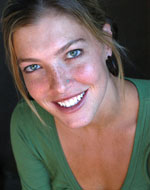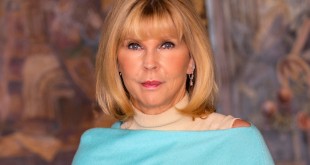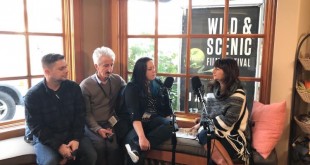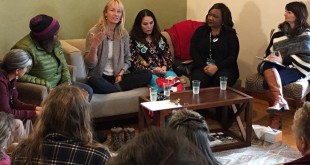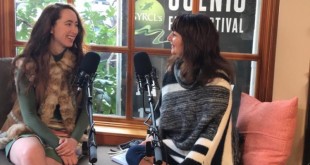What motivated you to create Women’s Earth Alliance?
“If you asked me ten years ago I would never have guessed that this would be my path. For a long time I had been involved in environmental work and this passion brought me across the world to Africa in 2000 where I was working with an international organization called CARE. I discovered the dynamic profound intersection of environmental issues and women’s issues. Despite the great challenge that women face I have seen tremendous courage, resilience and creativity at the grass roots level. It’s about discussing these environmental issues holistically and including the issues of health, human rights, social justice, education, and economic development.”
When you launched the Women’s Earth Alliance how did you know where to begin?
“There was so much I didn’t know. What I had was a question. I wanted to know what the world would look like if women environmental leaders had a platform to amplify their message and to design the way they wanted their communities to look like. I asked my advisors. I asked my mentors and I asked my peers what it would look like and if they wanted to design this together. Our organization was born out of a collaborative design from women all over the world.”
What is the impact you’ve seen from women working together as a community?
“For decades development strategies have been about the transfer of information, resources and knowledge, a one way movement from places of privilege to underserved communities. My interest in the work we do with Women’s Earth Alliance is much more reciprocal. I believe that there is a great deal of knowledge, skill, instinct and wisdom at the local level. When local leaders have the opportunity to envision and design their future something very powerful happens. And when local leaders have the opportunity to connect with outside resources and information in a dynamic way, to share what they know and request what they need I think change is much more long lasting and sustainable.”
You recently returned from Ghana. How has the training enhanced the lives of the women and their community?
“We just returned from the 2010 West African Women in Water training. We focus on self-reliance. Women learn business development skills, the theory behind water and sanitation, discussing climate change and gender. They were stirring cement, building solar cookers, water filters, and rain water harvesting systems so they could go back to their community and not just talk about water but actually design solutions in their communities. Each team has access to a grant of $1,500 to launch their pilot program and most of the trainers are local women from Africa who have first hand experience.”
World Water Day is taking place on Monday, March 22nd. What is the connection between women and water?
“If you look at any community in the developing world women hold the burden of water literally on their heads and on their backs. 1.2 billion people do not have access to clean water right now and more than half are women and girls. Women walk an average of four miles a day to get water in developing countries. When you hear the stories of women who haven’t had a chance to go to school or create a livelihood for themselves because of the burden of accessing water, which is their responsibility, it is so deeply upsetting because we know there are ways to avoid this. Women can be the gate keepers to water solutions. When I celebrate World Water Day I celebrate the leadership of women.
Every time I turn on the faucet I am reminded that my experience with water is very different from my colleagues. Yet we share the same dependency on this resource. Water is life and allows us to have everything else. ”
What is your message to women around the world?
“We don’t need to wait for the experts. We are the experts and need to acknowledge the wisdom that each woman holds as a caregiver. We can be designers of our own communities and we’re not alone. The more we can come together and unite our voices, the more powerful our work will be.”
See Jane Do is a multimedia program capturing the stories of everyday women doing extraordinary things for the planet. Catch the one-hour talk radio program on KVMR 89.5FM the first Wednesday of every month at 1 p.m.
Get involved !
5 things you can do today to celebrate World Water Day Everyday.
- Inform yourself about local, regional and global water issues.
- Use your social networks to spread the word about water and sanitation.
- Write your representative and demand greater US leadership on access to drinking water and sanitation for the world’s poor.
- Attend a local permaculture, rainharvesting or irrigation workshop to learn more about how you can conserve water.
- Support and donate to organizations like Women’s Earth Alliance and the Rotaract Club of Nevada County that are working in developing countries to improve health and access to clean water.
 See Jane Do Everyday Women Doing Extraordinary Things
See Jane Do Everyday Women Doing Extraordinary Things
